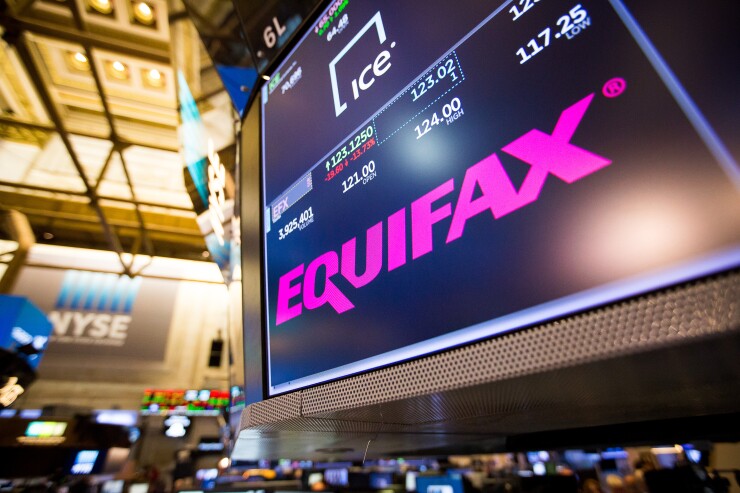Want unlimited access to top ideas and insights?
Welcome to the PaymentsSource Morning Briefing, delivered daily. The information you need to start your day, including top headlines from PaymentsSource and around the Web:
Inside and outside job? Investigators in the Equifax breach are pursuing clues that hackers were aided by sources inside Equifax,

Card game: As video game makers push to turn their game consoles into living room entertainment hubs, an updated payment card wasn't going to be far behind. The revised
$175 million chat: The Federal Reserve Board has fined HSBC $175 million for "unsafe and unsound" foreign exchange practices, according to the
South Korea bans ICOs: South Korea has joined
From the Web
CNBC | Mon Oct 2, 2017 - Fintech start-up Curve will now let users claim business expenses across multiple bank cards through its app. The London-based firm's app allows its users to link all of their bank cards to one contactless Mastercard. Curve said it hopes to automate the tedious process and remove any friction associated with business expenses. It is predominantly targeted at small business owners and the self-employed. Curve said Monday it would add online accounting software developer Xero to the app, meaning users will now be able to claim business spending across all their accounts.
Fortune | Sat Sep 30, 2017 - Blockchain is a marvelous technology. It relies on sophisticated cryptography to create a tamper-proof ledger across multiple computers, eliminating fraud and mistakes. It's no surprise, then, that pundits are popping up who say using blockchain can avert the next Equifax breach. Too bad it's not that easy. While blockchain is poised to transform a lot of things—from shipping to the diamond industry—it can't fix sloppy data practices at the credit bureaus. According to David Treat, who leads the blockchain practice at Accenture, the architecture of blockchains is not designed for massive data sets. He explained that, in the case of Equifax, the company's business practice is about using algorithms to query a massive repository of customer records in order to spit out a credit score. While consumers and companies could use a blockchain to access the score, it's still up to the credit bureaus to protect the underlying pool of personal information. Doing that, says Treat, requires segregating sensitive data and properly encrypting it.
Fortune | Sat Sep 30, 2017 - If you dropped by Starbucks for a free cup of coffee on National Coffee Day, you would instead have been greeted by signs about the company's supply chain, ethical sourcing commitments, and support for coffee farmers. Rather than being handed freebies, customers were invited to pause and consider the global economy of the caffeinated bean, one of the world's most valuable agricultural products from the tropics. Most of the world's coffee is grown by small farmers, many of whom depend on family labor and unreliable income—often less than $2 a day, the World Bank says. In fact, 25 million of these farmers produce an astounding four-fifths of the world's total coffee supply, according to the UK non-profit Fairtrade Foundation. Now there's a tech startup that wants to change the economics. Bext360, a year-old Denver-based company, is applying technology, like robots, mobile apps, and blockchains—the shared accounting ledger technology that paved the way for Bitcoin's rise—in order to, as it says, "improve the upstream supply chains of key commodities," starting with coffee.
More from PaymentsSource
It has taken nearly two years since the EMV liability shift in the U.S., but restaurants are adapting to new point-of-sale technology that includes EMV and mobile capabilities.
Jamie Dimon's comments on bitcoin don't consider the virtual currency's value and potential, writes Bharath Rao, CEO of Leverj.
WASHINGTON — Technology giants like Google, Amazon, Facebook and Apple are showing an increasing interest in engaging with federal banking regulators, a move that underscores Silicon Valley’s growing involvement in the financial services arena.
In YouTube's fight against extremists' use of its platform, Patreon is an unintended casualty. YouTube, a unit of Google, no longer lets creators of fringe channels — those with fewer than 10,000 public views — monetize their videos, and this policy goes beyond blocking ads. It also means YouTube may block off-site links to funding sites such as Patreon.





